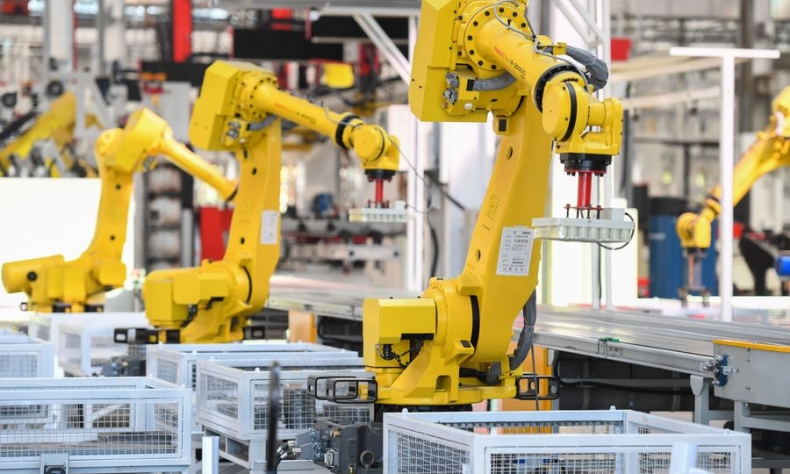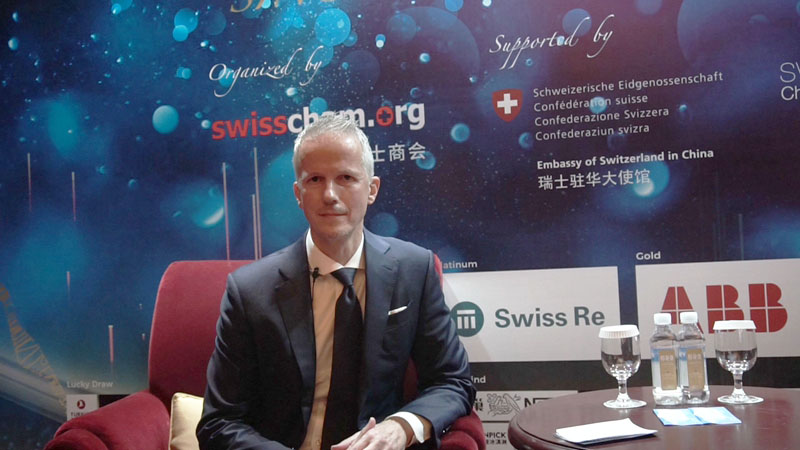Swiss Optimism About China’s Market

ABB is constructing a new robotics factory with $150 million of investment in Shanghai, which will open in the first half of next year. It will be a factory where robots are used to assemble robots for advanced and automated production.
Leading Swiss technology company ABB entered the Chinese market in the early 1980s, and today, China has become its second largest market globally. The company has 27 enterprises in China, employing around 15,000.
Prior to the upcoming fourth China International Import Expo (CIIE), Lars Eckerlein, General Manager of ABB (China), expressed his expectations of the briskly evolving Chinese market in an interview with Beijing Review reporter Li Xiaoyang. Edited excerpts follow:
ABB’s business activities range from research and development (R&D) to manufacturing. Its sales and services have both been localized in accordance with China’s demands and needs. ABB has been developing its business in China within a favorable environment boasting dynamic business activity in sectors such as electrification, robotics and automation.
ABB has close to 1,500 R&D engineers in China who are co-developing products sold across the country and the rest of the world together with the company’s Chinese partners. Over the last years, it has also launched hundreds of projects in more than 70 countries through cooperation with Chinese enterprises. It is optimistic about the development in the Chinese market and will therefore keep investing in China.

Globally speaking, China is ABB’s largest robotics market. After launching the world’s first dual armed collaborative robot in 2015, ABB introduced the latest generation of collaborative robots, co-developed with Chinese researchers and engineers, to facilitate human work earlier this year. ABB has set up a R&D center in Shanghai.
In addition, the company has spotted room for the further development of the robotics business in China. Robot density, i.e. the number of robots per 10,000 workers, has been snowballing in China over the past years, and has not yet reached similar levels in other countries. ABB is constructing a new robotics factory with $150 million of investment in Shanghai, which will open in the first half of next year. It will be a factory where robots are used to assemble robots for advanced and automated production.
Global challenges such as labor shortages caused by rapid urbanization and climate change equally apply to China. Labor shortages can be addressed by the industrial upgrading and technologies of robotics and machine automation.
Over the past eight years, ABB has cut greenhouse gas emissions in its factories by more than 50 percent. The company launched its “sustainability strategy 2030” last year to promote all affiliated factories and offices to become fully carbon neutral by the year 2030.
It also aims to introduce solutions for its customers in energy-consuming industries, such as engineering and infrastructure, to decrease carbon emissions. That will not only benefit the company, but will contribute to China’s goals of peaking carbon emissions before 2030, too.
Source: Beijing Review
 Facebook
Facebook
 Twitter
Twitter
 Linkedin
Linkedin
 Google +
Google +










